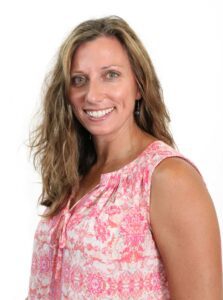
I know people have a love-hate relationship with Facebook. I personally love Facebook, it is how I keep up with my college roommates and how I find out what my fellow moms are griping about at midnight on Monday. I take it for what it is — a place where people get to choose what they share with the world.
That is the very reason an acquaintance of mine has decided to walk away from Facebook. She jokes that Facebook should be called Fakebook because it allows people to create a facade — she argues that it’s deceiving when people use filters on their photos so everything looks better than it is, and people only post the good things happening in life, the wins. It presents a skewed picture of a perfect life, and that can be depressing for those of us who aren’t living a perfect life.
But to me, that is what is great about social media: You get to choose what you post. I generally want my Facebook stream to be happy and reflect the joys and funnies of being a mom. And when photos from years past pop up on my feed, I want them to make me smile. I know other people who use their social media feeds to gripe and vent about life, and there is nothing wrong with that, and I know other people who use their feeds to sell goods or promote their professional dealings. Some people want to talk a lot on social media about food, and others talk a lot about sports or politics.
There are challenges and obstacles in my life, and there are things that frustrate me. I just choose, for the most part, to not share that on my social media feeds. And I absolutely don’t judge those in my social communities who do choose to use their social media channels for those very reasons — it’s what makes my feeds so diverse. The beauty of social media is that we get to choose, for the most part, what slices of our lives we want to share in that space. But we have to go there as viewers and consumers knowing just that: People are choosing what slices to share. Just because I don’t share my frustrations and challenges with my social communities, that doesn’t mean I don’t have them.
This crosses over to the bigger conversation about fake news and how as consumers we have to be responsible for understanding that there is a bigger picture. We have to question what is being presented and know that we have to dig deeper to get a true picture. Writer Linda Esterson takes a look in this issue (page 38) at what fake news is and how to avoid being a part of the fake news cycle.
We all have to enter the realm of social media, and news, with eyes wide open, as educated consumers who realize there may be more lurking beneath the surface. For my friends on social media, I am happy seeing whatever slices they choose to share. For news, I have a higher standard.













